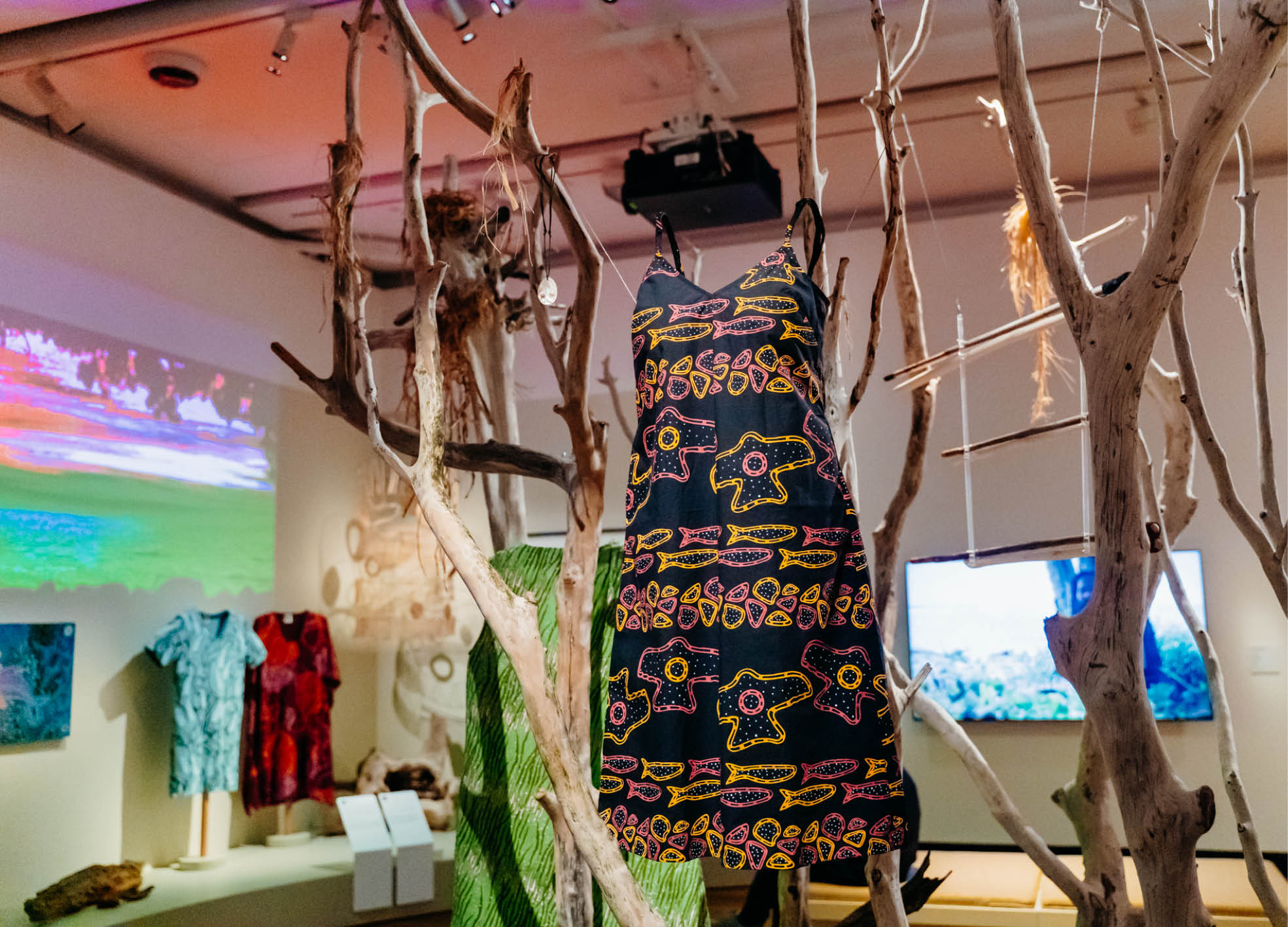Business (Not) as Usual: This Coffee Company Is Changing the Game, Not the Player
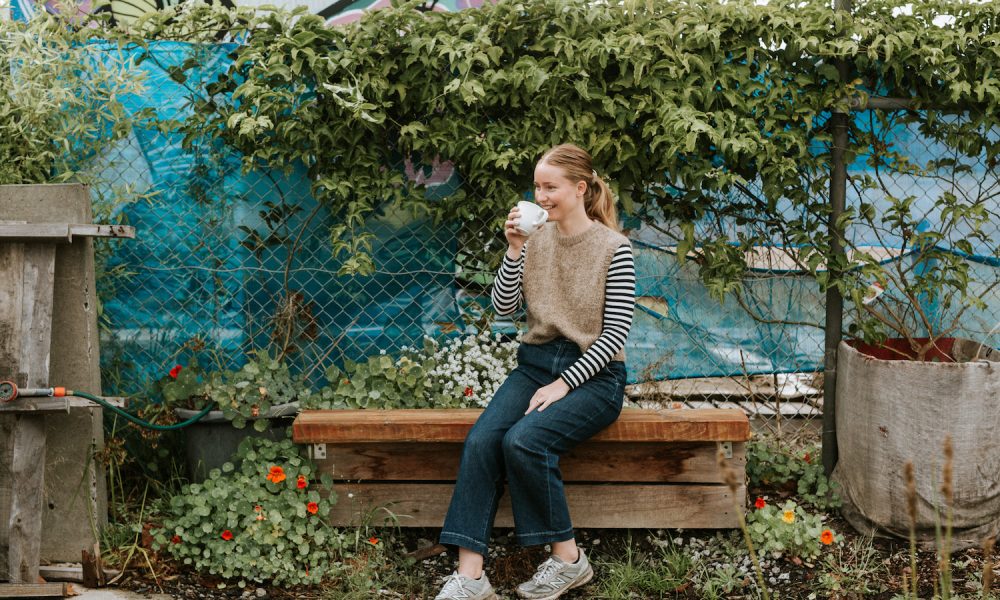
- Words by Peppermint
If you think dumping your coffee grounds in the bin after your daily grind isn’t as harmful to the environment as single-use plastic, think again. With millions of tonnes of waste grounds sent to landfill each year, where they don’t decompose the same as other organic waste, it’s a lesser-known – but still problematic – environmental issue. Enter Ninna Larsen, a former barista with a relentless need to help the planet, and her social enterprise Reground. What started as a localised waste collection service in 2014, ferrying grounds between cafes and community gardens, is now a circular economy solution helping cafes around Australia become more sustainable.
Here, as part of our series ‘Business (Not) As Usual’, brought to you by Peppermint and Bank Australia, we speak with Ninna to get a peek behind this purposeful business and find out why changing the game rather than the player is so important for making truly sustainable change.
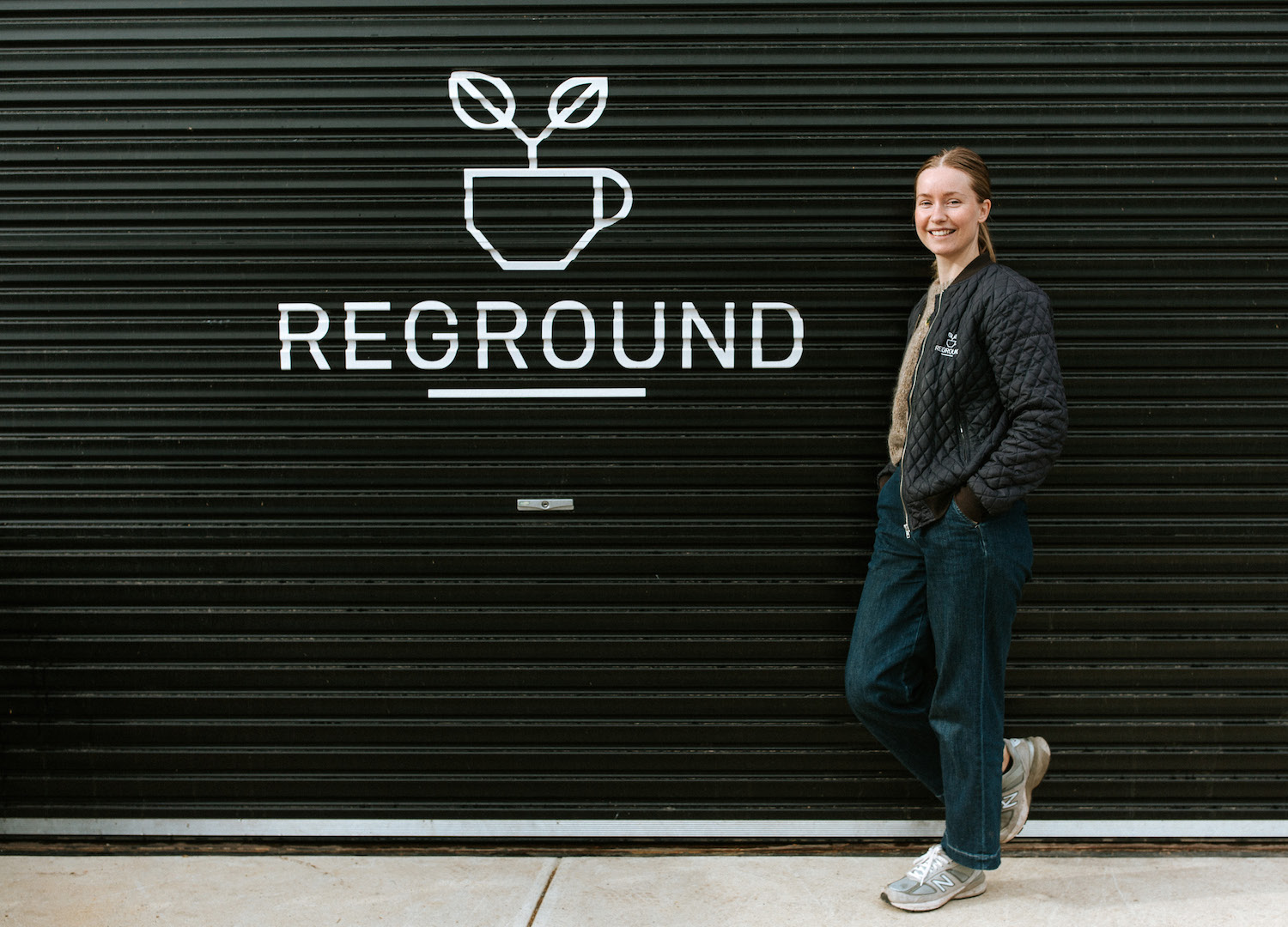
Tell us about the Reground journey? What inspired you to create it?
Reground was born while I was working as a barista at a cafe in Brunswick East, Melbourne. Originally from Denmark, I’d lived and worked in Australia for a year and was looking for something meaningful to apply myself to – something to address this restlessness and concern for the planet I’ve had since I was very young. As I was brewing coffee and creating lots of waste, I started questioning where all the used ground coffee ended up and learned it was landfill. That’s how Australia’s broken waste system became visible to me, and it gave me energy to try and fix it. I started collecting ground coffee from cafes and bringing it to local community and home gardens free of charge, which taught me the value and potential in localised waste systems. Reground still operates this great community service but we are also working on large-scale waste avoidance and minimisation solutions with small businesses, councils, state and federal government. It’s all about turning waste into a resource to create a waste-free community. Everything that answers this vision is worthwhile for us.
What have been the compromises and sacrifices? Were there any values you had to let go of?
The goal has been to prove that running a sustainable business can be as good and ‘successful’ as conventional business models. When Reground started, there were two camps – for-profit businesses and not-for-profit. The social enterprise concept hadn’t really manifested yet. I was confronted with traditional business people telling me how to assess the success of Reground early on – things like scaling, investment, exit-strategy – speaking the language of business that didn’t really align with our purpose. On the other hand, we had the not-for-profit organisations with great values and purposes, but they generally seemed to be relying on donations and grants, not really being internally sustainable. We really had to tread a new path of what success looked like for Reground. Because we wanted to change the waste system, we needed to exist as a for-profit business to be in the conversation with all the other waste companies. That’s often felt like a sacrifice because you keep getting measured against businesses on a parameter of success you inherently don’t believe in. And businesses in this space will go to great extents to make a profit – we wouldn’t do that. I don’t think we’ve compromised on values though, our values are the guiding light in all we do, so we’d rather change the game than the player.
What place do you think business has in creating a more sustainable future?
I believe businesses are an essential force for change. If more businesses had a (higher) standard for meeting social and environmental goals, we would see change come about much faster than what we’re experiencing now. Too often the excuse for businesses to stay business-as-usual is that they think doing better comes at high financial cost, which at this point is just an illusion. I think we all recognise that change is confronting and even sometimes a bit painful, however, change is happening regardless. When all businesses are trading in the new economy the future will be bright and we’re slowly getting there. Customers and staff really play a great role in this transition for businesses because their explicit support can really help this process along and speed it up. I wholeheartedly believe that change starts from the bottom – it will ultimately be social pressure that will get businesses in line.
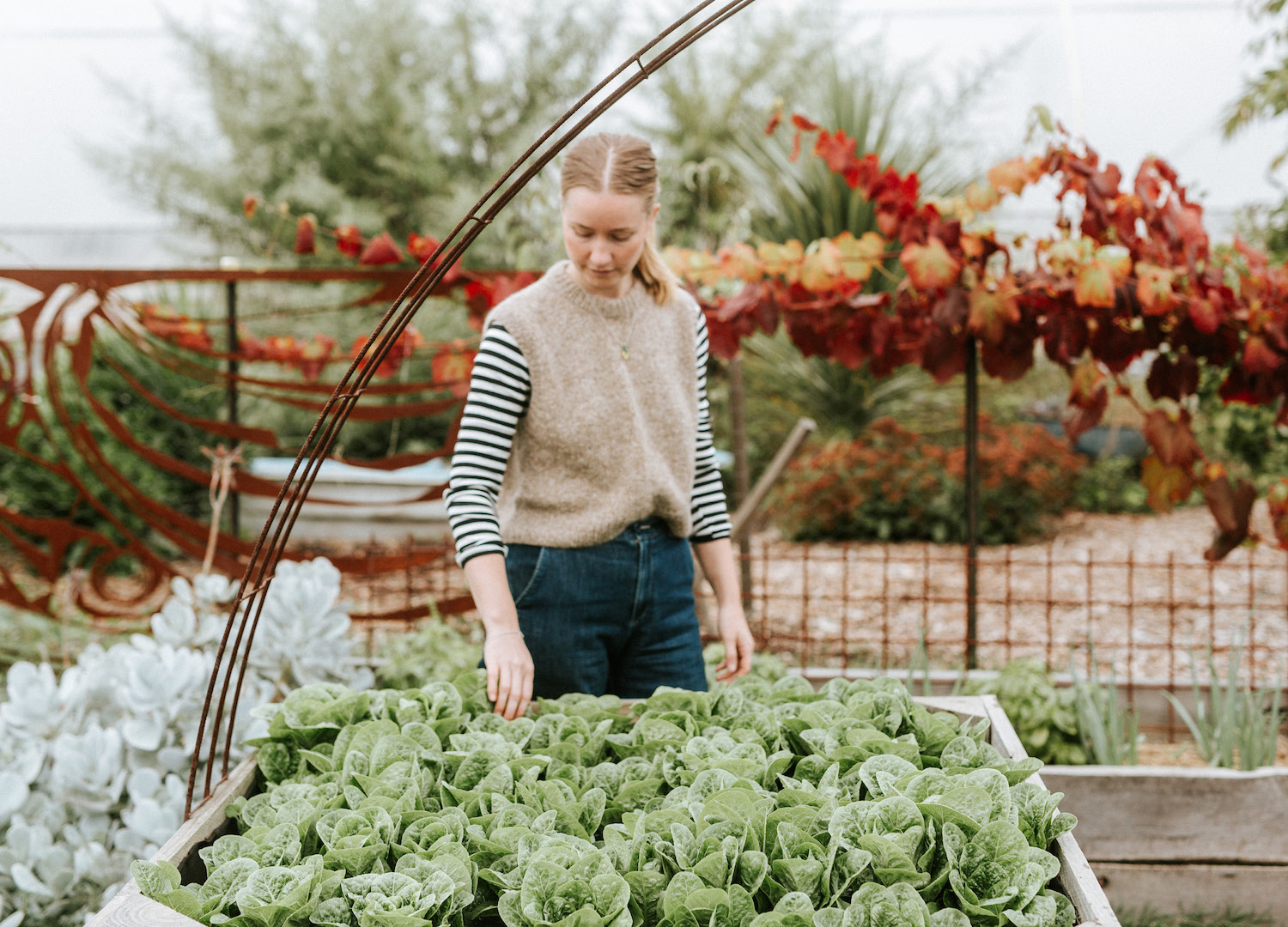
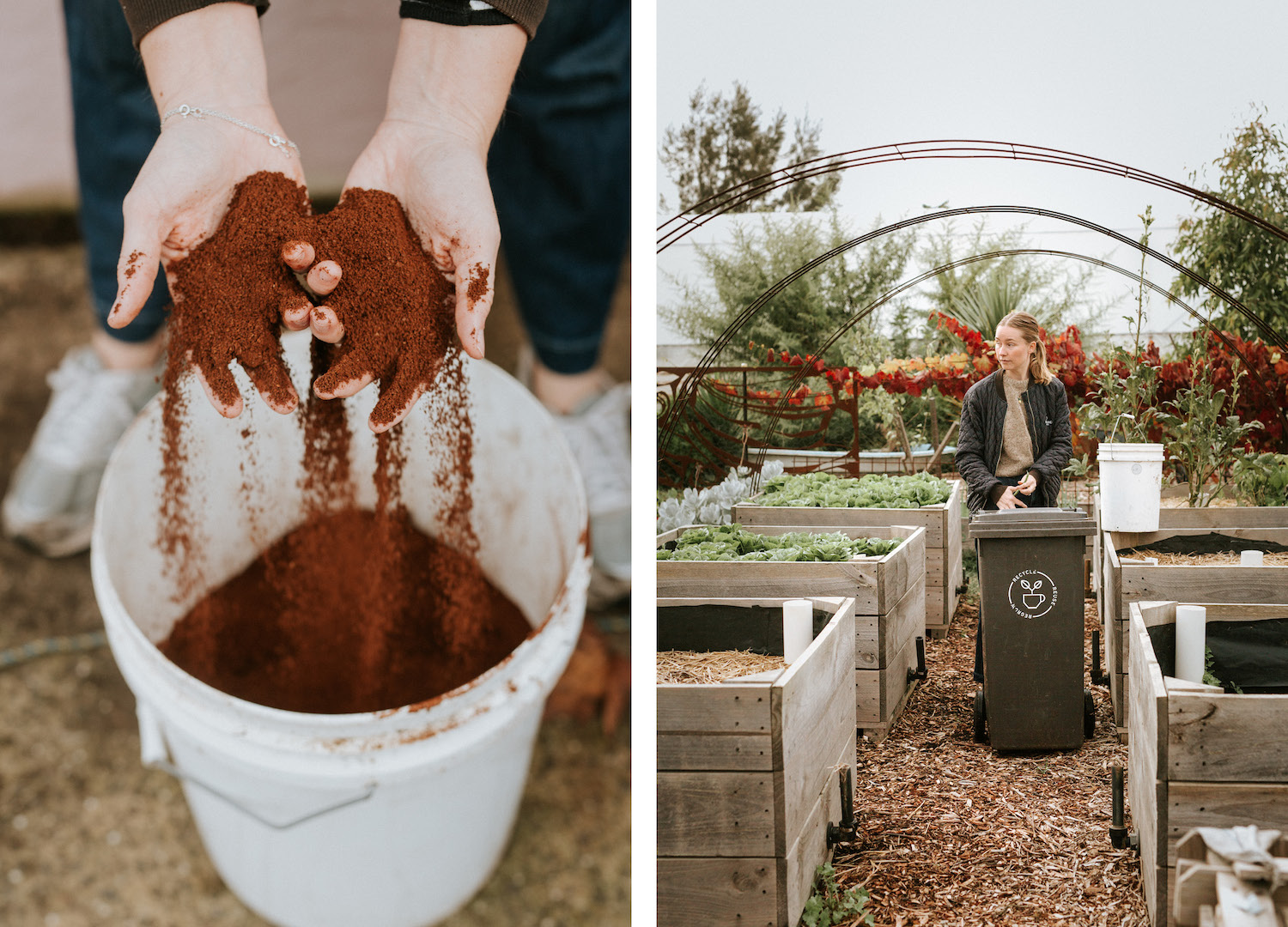
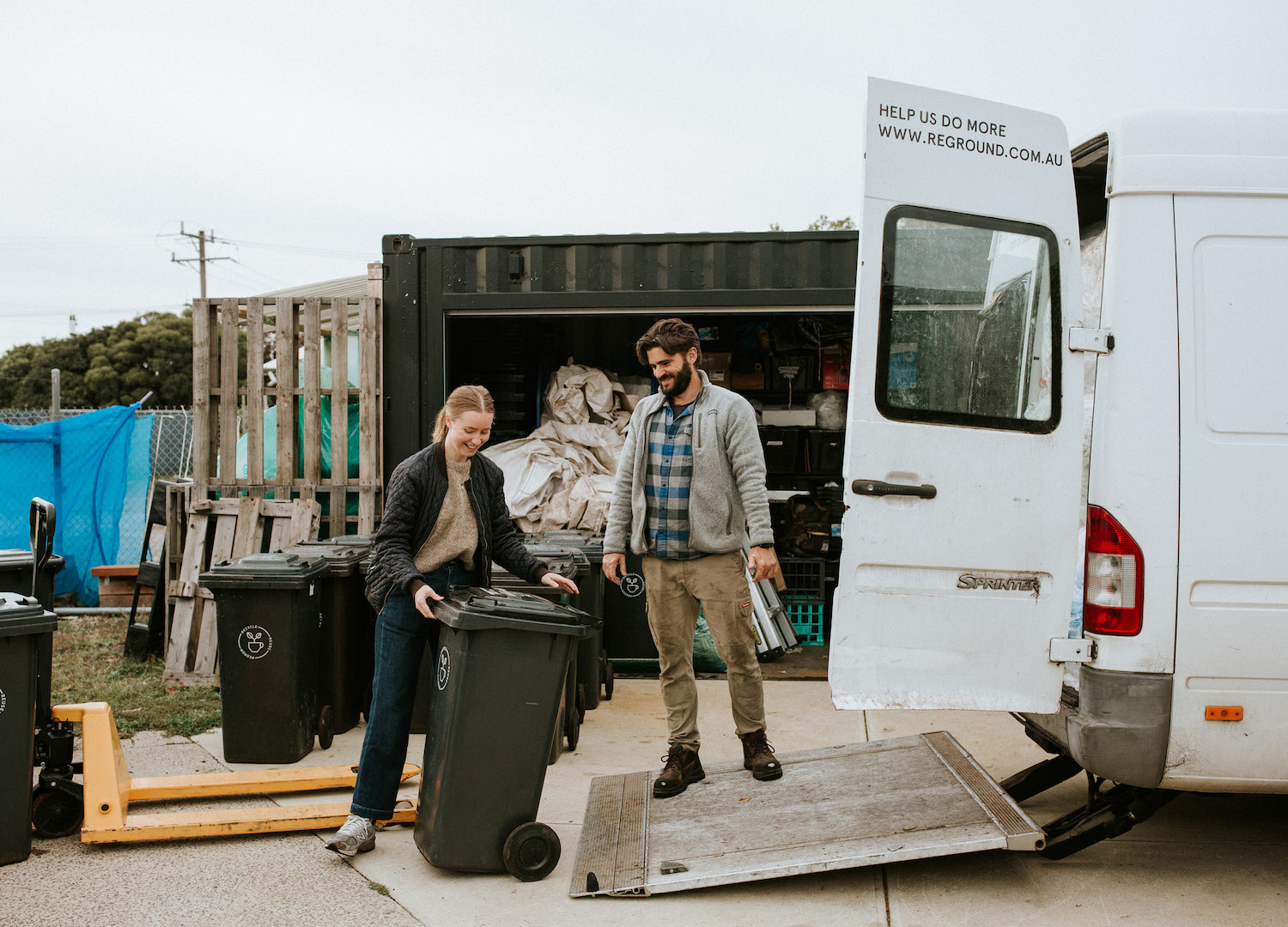
What are the easiest ways businesses (and individuals) can make a lasting impact?
Individuals should support – buy from, invest in, bank with – businesses that are doing the right thing. Businesses should trade and collaborate with other businesses that are doing the right thing. Practically, this means doing a bit of research on the businesses that align with your values. I suggest starting with all the things you purchase from regularly (like food shopping and more indirectly, insurance, super, banking or if you’re a business, your suppliers and internal and ongoing processes – like your waste providers) and then make the change. Walk the talk.
Money can often be seen as a bad thing when it comes to purposeful businesses… How do you think money can be a force for good?
To me money – even as an operator of an impact business – is the ticket to a better world. Money, in itself, isn’t a bad thing: it’s how we use it and who we financially support that can lead to devastating outcomes. Being mindful of who we are buying from is critical – it really is a vote either for or against a better tomorrow. A great example of this, for us, is that Reground has been banking with Bank Australia since we started. I made this choice because they are the only bank that put people and the planet first – just like us. I know the money is doing good, which I could not be guaranteed if I banked elsewhere. Just like when cafes chose to divert their coffee and soft plastics through us, their money is building and educating their local community, something they wouldn’t be guaranteed with a different provider. Simple choices can have a massive impact.
How do you balance sustainability and profit? Is there a way to do it without compromising?
My goal for Reground is never solely ‘to make a profit’, however, and I count us lucky, we have always made a profit. It all gets reinvested into the business to grow our impact and make Reground the best place to work. It started as a one-woman show and now we have seven staff members. We wanted to remain independent and not take investment so our growth has been steady, not necessarily slow, but not world-domination scaling as most startups aim for. We have worked hard to create meaningful services and improve our offerings, and it’s the leg-work and our in-depth understanding of the Australian waste system (and its gaps and areas for improvements) that’s generating work for us. It’s all about testing the waters, answering needs in your target market, sticking to your focus and values and delivering good services. With all of this, and some patience, you’ll easily be able to balance sustainability and profit.
What does a typical day look like for you?
It never looks the same, which I love. It always involves a catch-up with my team to keep on track of all the different projects and services we are delivering, and then aligning that with our KPIs and business goals. I will usually try and balance doing computer work, such as writing waste reports and researching new projects, with on-the-ground stakeholder engagement work, like site visits, consultations and even audits. I love my work, it’s very fulfilling and diverse.
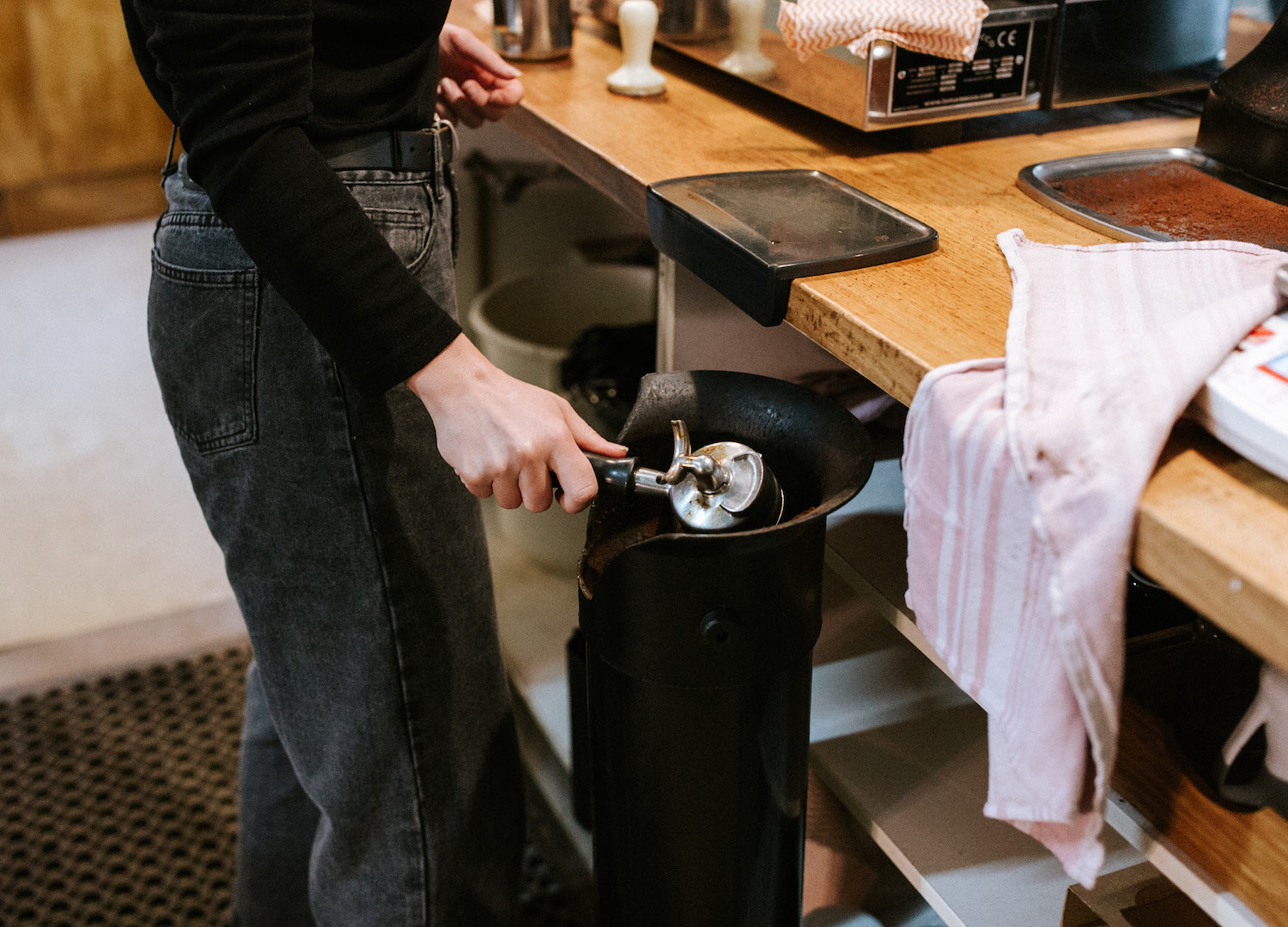
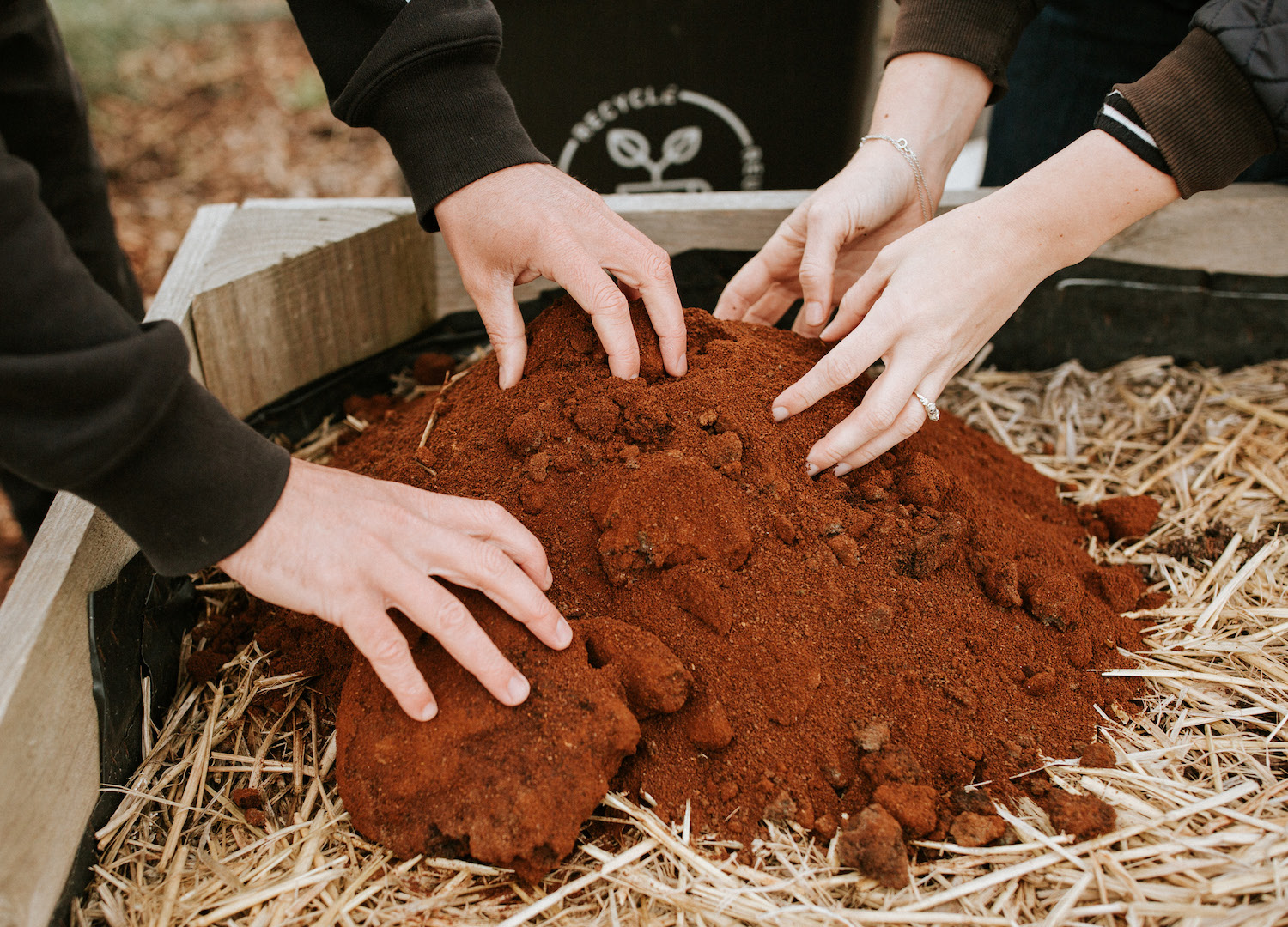
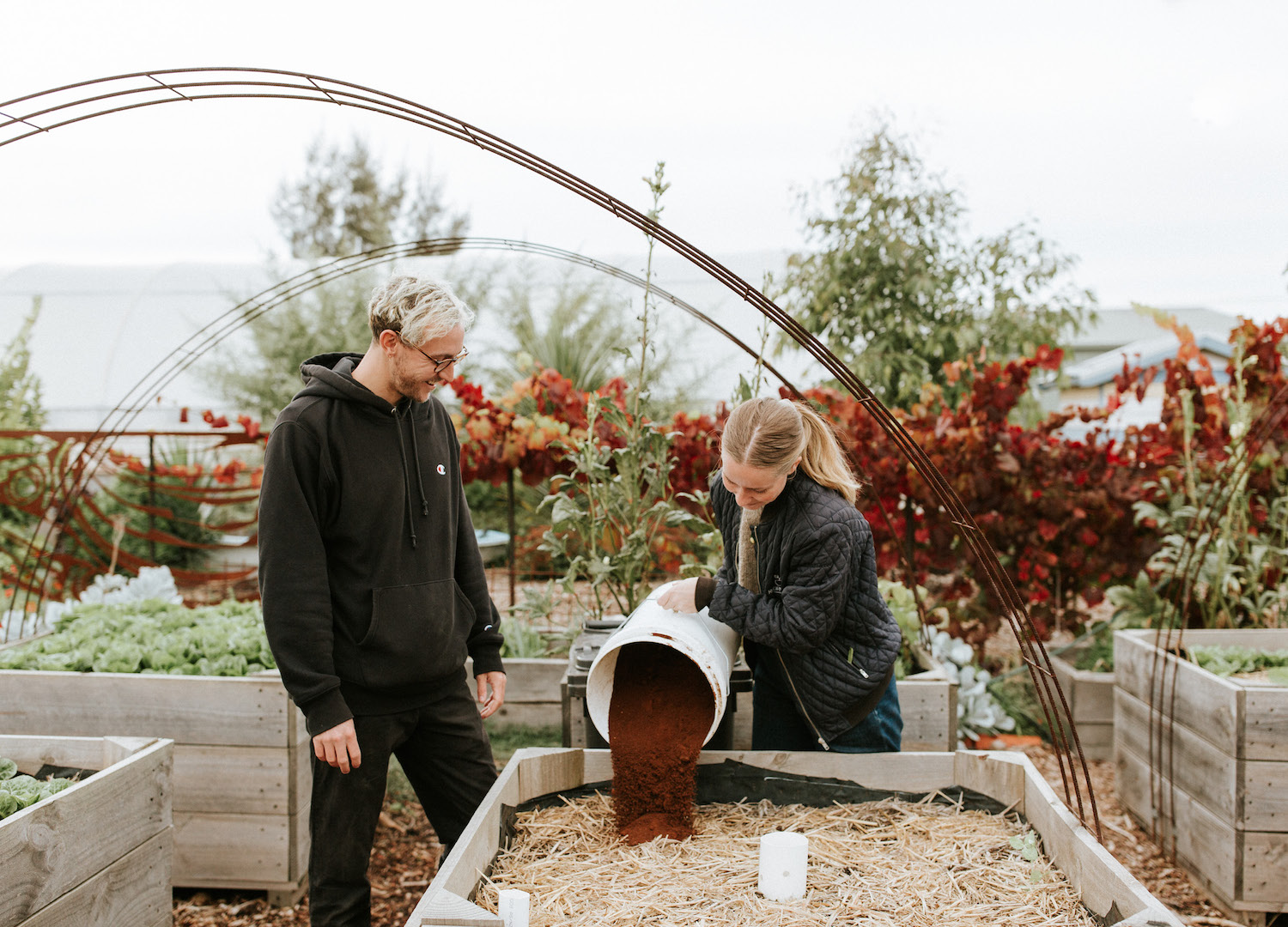
Any rituals or quirky/unique business practices that keep you ticking over and help you align back to your purpose?
We’re a very busy team and, sometimes, never in the same place. To keep everyone in sync, our Monday morning team catch-up is very important to me and our team culture. I have learned a lot over the years about delivering good work in a stress-free way – this can be a hard thing when you operate a young business. Our entire team works a four-day week because of this; we actually found we can do the same work in four days and then have extra time for personal projects and nurturing ourselves outside of work. I think this helps with our commitment to the purpose. Ultimately, the purpose is to foster healthy people in and around the business.
Tell us about the worst mistake you’ve made?
The biggest mistakes we’ve made at Reground are dealing with the wrong people. It hasn’t happened often, thankfully, but when you believe in and practice collaboration as much as we do, it’s inevitable. We have some pretty good processes for working out which people and organisations are legit and who is just there for the show. Relationships take a lot of time, so it can definitely be a great mistake to invest too much time in the wrong people. But if you learn from your mistakes, you’ll be fine.
What’s been your biggest lesson?
You are more than your work. It can be hard to separate yourself from your business – it can become your entire life if you’re not careful. I think this is a tendency in our society generally in fact, not just for people running businesses. We put so much value on our careers, outcomes and less on the subtle growth that happens internally within us. This is particularly important for women. I think we’ve been taught the highest value we create is through work, so stepping out of the workforce to have children, as an example, can really be a cause for internal conflict. I definitely had to reframe my worth when I stepped out of Reground to have my son three years ago. I have learned my creative energy can be directed to more places than just Reground which created more balance for me and opened new doors.
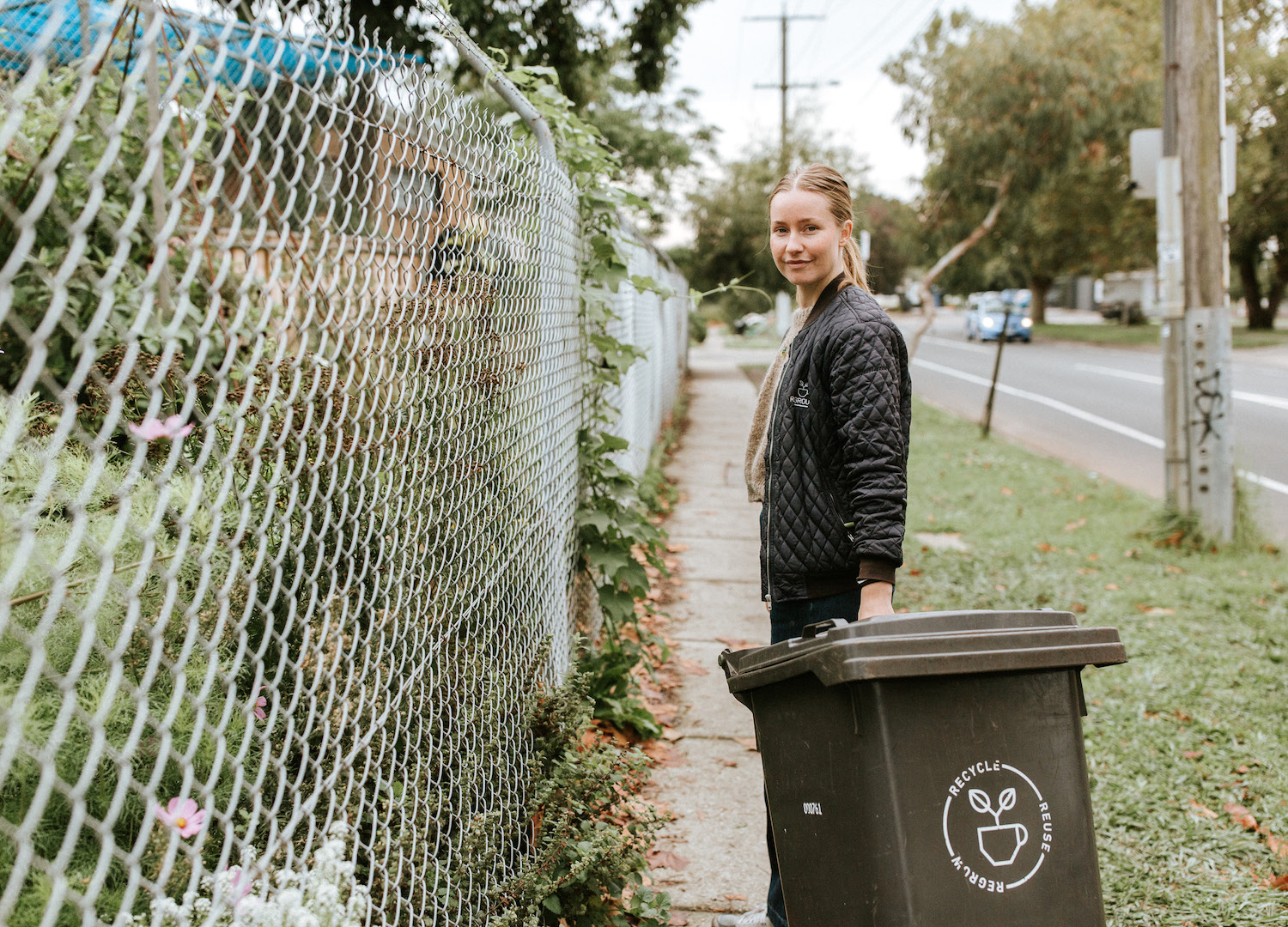
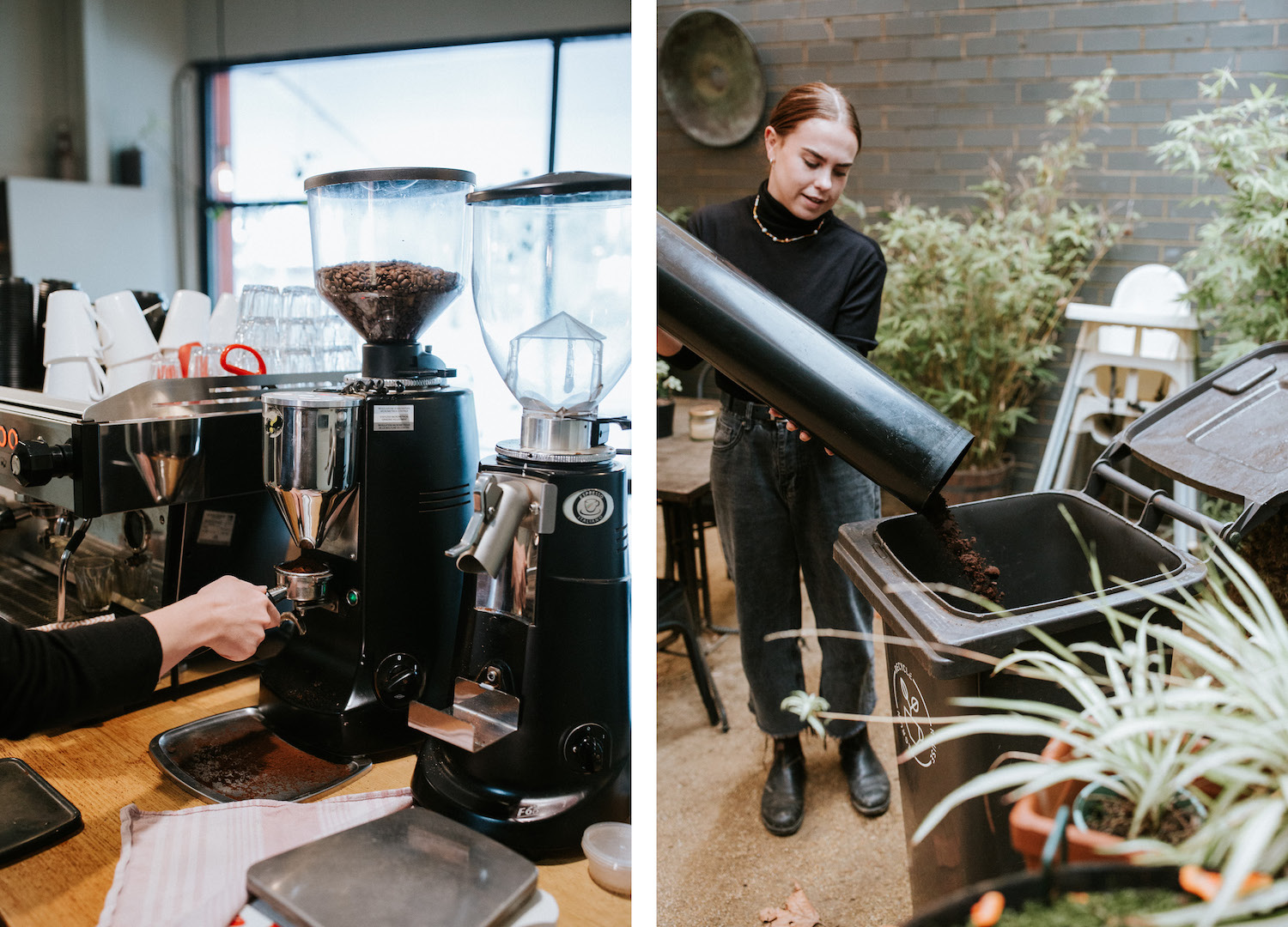

What would tell your startup self if you could go back?
Stop and smell the roses!
Do you believe true balance is possible?
Yes, yes, yes – 100%! In actual fact, I think it’s critical to prove this in order to establish a new economy for truly sustainable businesses. Better businesses are simply run by better people. This means we need conditions for workers to be good for them to think clearer and to challenge the norm, which takes lots of headspace and to feel meaning in and around work. It’s hard, because we have very little to model off and the framework around our work lives is still pretty conventional generally. It’s also highly individual, so you have to work with each staff member directly. But at Reground we are serious about creating the ideal conditions for people as it’s because of them we have the success that we have.
What is the secret to truly combining business purpose and passion?
Understanding your ‘why’ and having a strong support network that knows your ‘why’. It’s very hard to run businesses, full stop. If you’re in business to change the world, it can be even harder. But, like Nietzsche said, “He who has a why to live can bear almost any how.” Understanding why you do it, having a deeper connection with what motivates you and understanding what can trigger renewed energy is highly favourable – you will need it again and again (and it will get easier). If you don’t have a strongly defined passion, or you don’t have the patience to start your own business, I highly recommended supporting people spearheading change – join their business, support their business – because change is a collective effort. No one can change the world on their own.
Thanks so much to our partner Bank Australia for supporting our ‘Business (Not) As Usual’ series. One of Australia’s few B Corp-certified banks, Bank Australia believes in a fair and just world – working with their customers to use money as a force for good to help create positive impact for people, their communities and the planet.
PHOTOS OF REGROUND BY CATHERINE ELISE FOR PEPPERMINT
JOIN OUR MAILING LIST
Brighten up your inbox with our not-too-frequent emails featuring Peppermint-related news, events, competitions and more!
explore
More articles
It’s beginning to look a lot like Christmas…. Which means we are officially entering party season. Work parties, friend-dos, family get-togethers and then we’re straight into New Year festivities. If you’re lucky enough, you might be staring down the barrel…
Look, I don’t want to make anyone panic but IT’S DECEMBER!!! If you’re planning to give homemade gifts, you’re going to have to act fast. …
Furred, feathered, fishy, scaled… The pets we choose are as diverse as our personalities. (And apparently, quite often we resemble each other.) But they all…
When you hang a painting on a wall, the story stays put. But when you wear a beautifully made garment that may as well be…
Hang out with us on Instagram
“We love that we can bring a hint of imagination and whimsy into everyday life by making ordinary objects fun. We’ve learned to appreciate the little wins and to take a moment for each step we achieve.”
Disillusioned by the realities of fast fashion, design grads Emily May and Sidonie Moore ditched clothing for a business that finds fun in the everyday. Enter @TheNonsenseMaker: a collection of unique homewares, fun wall art, greeting cards and more that breathe life into Emily’s illustrations: “I love the idea of taking real-world objects and changing your perspective in a way that brings magic and whimsy into everyday life!”
In issue 64’s feature ‘It all makes sense’, we chat to the Naarm/Melbourne-based duo about their sustainability philosophy, TV re-runs and their commitment to local makers. At stockists now!
Photos: @MeAndMyGirl
#PeppermintMagazine #TheNonsenseMaker #LocalMakers #SustainableCraft

Any New Year’s resolutions on your list? We love this from @OtterBeeStitching - “be brave enough to suck at something new”.
There’s no points for perfection, but you’ll get a trophy for trying. If nothing else this year, take the leap and try something new.
#OtterBeeStitching #Embroidery #BeBrave #TrySomethingNew #EmbroideryArt

Sunday serving suggestion ☀️
Gorgeous photos from @JolieFemmeStore - who make sweet garments from vintage bedsheets.
#PeppermintMagazine #SlowSunday #SwitchOff #Unplug #ReadAMagazine

A toast to the old you 🥂
We wholeheartedly love this post from the brilliant @EmilyOnLife:
“2026: Reinvent, burn it down, let it go (whatever it is). Year of the Snake it up. Exercise your boundaries, exercise your body, take one teeny step every day towards a life that feels better to be in.
But don’t you dare shit on your old self while you do it.
Hold yourself with reverence and tenderness and respect, because you got you this far. You did your very best with the information and tools you had at the time. You scraped yourself together, you made it work, you survived what felt impossible to survive: again and again and again.
You are perpetually in the process of becoming, whether you can feel it or not, whether or not you add it to your 2026 to-do list.“

Some very wise words from @Damon.Gameau to take us into 2026 🙌🏼

⭐️ We made it!!! ⭐️
Happy New Year, friends. To those who smashed their goals and achieved their dreams, and to those who are crawling over the finish line hoping to never speak of this year again (and everyone else in between): we made it. However you got here is enough. Be proud.
It’s been a tough year for many of us in small business, so here’s to a better year in 2026. We’re forever grateful for all your support and are jumping for joy to still be here bringing you creativity, kindness and community.
We’re also excited to be leaping into the NY with our special release sewing pattern – the Waratah Wrap Dress!
How great are our fabulous models: @Melt.Stitches, @KatieMakesADress and @Tricky.Pockets - and also our incredible Sewing Manager @Laura_The_Maker! 🙌🏼
Ok 2026: let’s do this. 💪🏼
#PeppermintWaratahWrapDress #PeppermintPatterns #SewingPattern #MeMade #WrapDress #WrapDressPattern


















